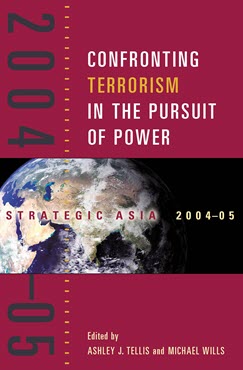Introduction
Confronting Terrorism, Consolidating Primacy
This introductory chapter argues that United States needs to wage a war on terrorism that not only destroys Al Qaeda and stabilizes Afghanistan and Iraq, but also addresses the roots of sprawling anti-American sentiment in the Middle East.
The U.S.-led war on terrorism is likely to remain one of the central issues facing U.S. grand strategy in Asia. The Bush administration entered office determined to secure U.S. primacy amid the emergence of major power centers in Asia, such as China, but the September 11 attacks forced the administration to confront a worldwide Islamist insurgency. On balance, the United States has managed these interlocking challenges with partial success. Important improvements to the United States’ long-term international position have been offset by the failure to make the exercise of U.S. primacy more palatable to the international community and by setbacks in the war on terrorism. Although Washington’s pursuit of Al Qaeda and its global affiliates has recorded notable successes in Asia, U.S. strategy so far has been unable to reduce the global ranks of disaffected Muslim sympathizers. The United States needs to wage a war on terrorism that not only destroys Al Qaeda and stabilizes Afghanistan and Iraq, but also addresses the roots of sprawling anti-American sentiment in the Middle East.
Strategic Asia
The Strategic Asia annual edited volume incorporates assessments of economic, political, and military trends and focuses on the strategies that drive policy in the region. Learn more about Strategic Asia.


